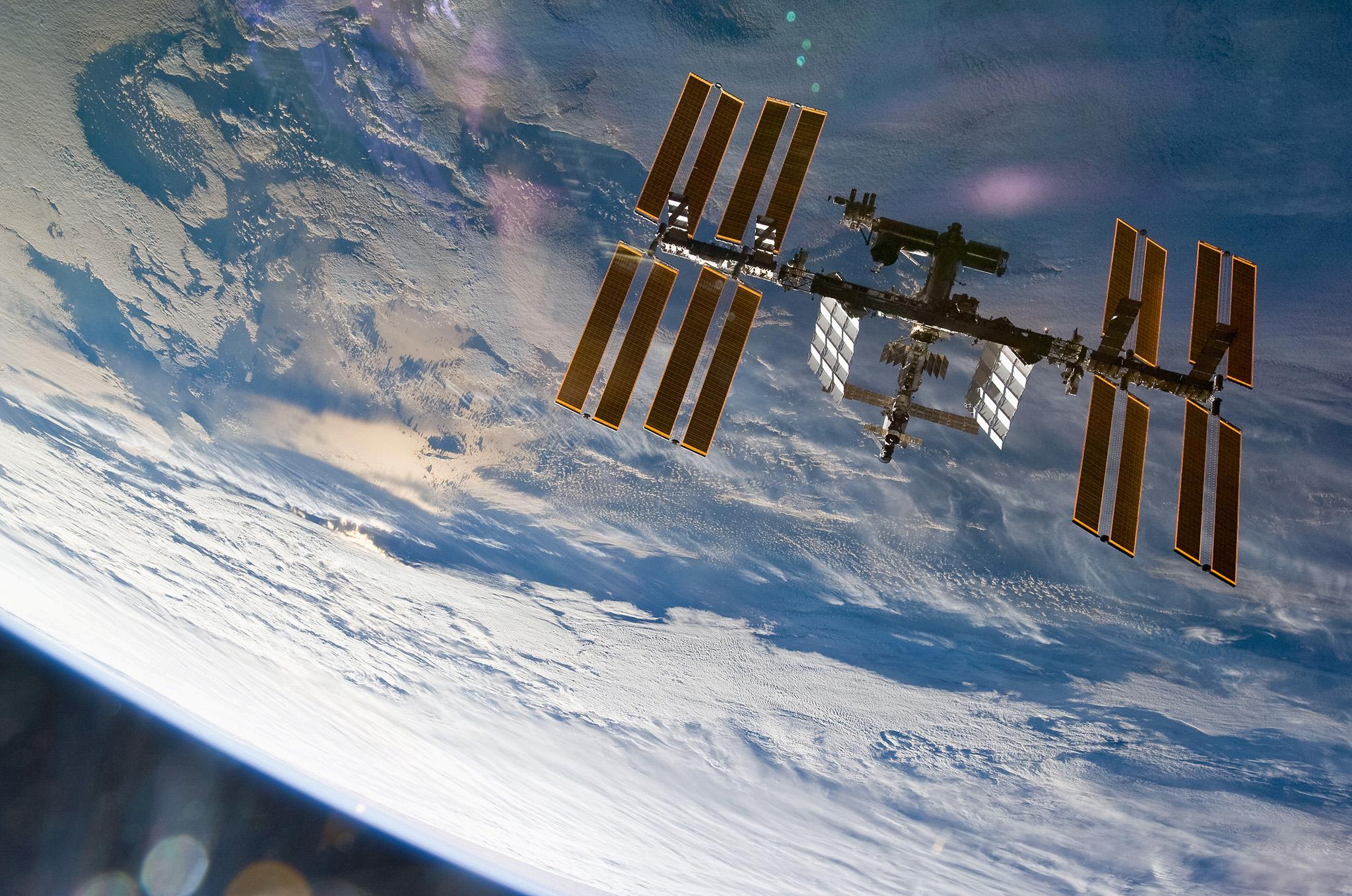How to see the ISS as it passes over the UK tonight
As the third brightest object in the sky behind the Sun and the Moon, the space station can easily be spotted with the naked eye

The International Space Station will be passing overhead this evening, allowing skywatchers in the UK the chance to catch a fleeting glimpse of the orbiting laboratory.
At 10.29pm on Friday 24 July and 00.06am on Saturday morning, the ISS will be visible – weather permitting.
It will appear as a steadily moving bright dot passing from one horizon to the other, taking a few minutes to traverse the sky from west to east.
As the third brightest celestial object behind the Sun and the Moon, the ISS can easily be seen with the naked eye.
“The space station is visible because it reflects the light of the Sun, the same reason we can see the Moon,” Nasa states on its website.
“However, unlike the Moon, the space station isn’t bright enough to see during the day. It can only be seen when it is dawn or dusk at your location. As such, it can range from one sighting opportunity a month to several a week, since it has to be both dark where you are, and the space station has to happen to be going overhead.”
Various apps and websites are available that provide the times of when the ISS will pass overhead, as well as the location in the sky to look out for it.
Nasa has an online tool called Spot the Station that provides the times from thousands of locations around the world.
It also offers users the chance to sign up to email and text alerts when the space station is flying over.
Space as seen from a grandmother's garden
Show all 10The European Space Station also has a live tracker of the ISS, which shows where the space station is right now and its path 90 minutes ago and 90 minutes ahead.
Travelling at 28,800km/h 400 km above the Earth's surface, it takes just 90 minutes for the ISS to make a complete circuit.
Other sighting opportunities this weekend from the UK are listed below:
- Saturday, 25 July, 9.43pm
- Saturday, 25 July, 11.18pm
- Sunday, 26 July, 10.30pm
- Monday, 27 July, 00.08am
Subscribe to Independent Premium to bookmark this article
Want to bookmark your favourite articles and stories to read or reference later? Start your Independent Premium subscription today.

Join our commenting forum
Join thought-provoking conversations, follow other Independent readers and see their replies